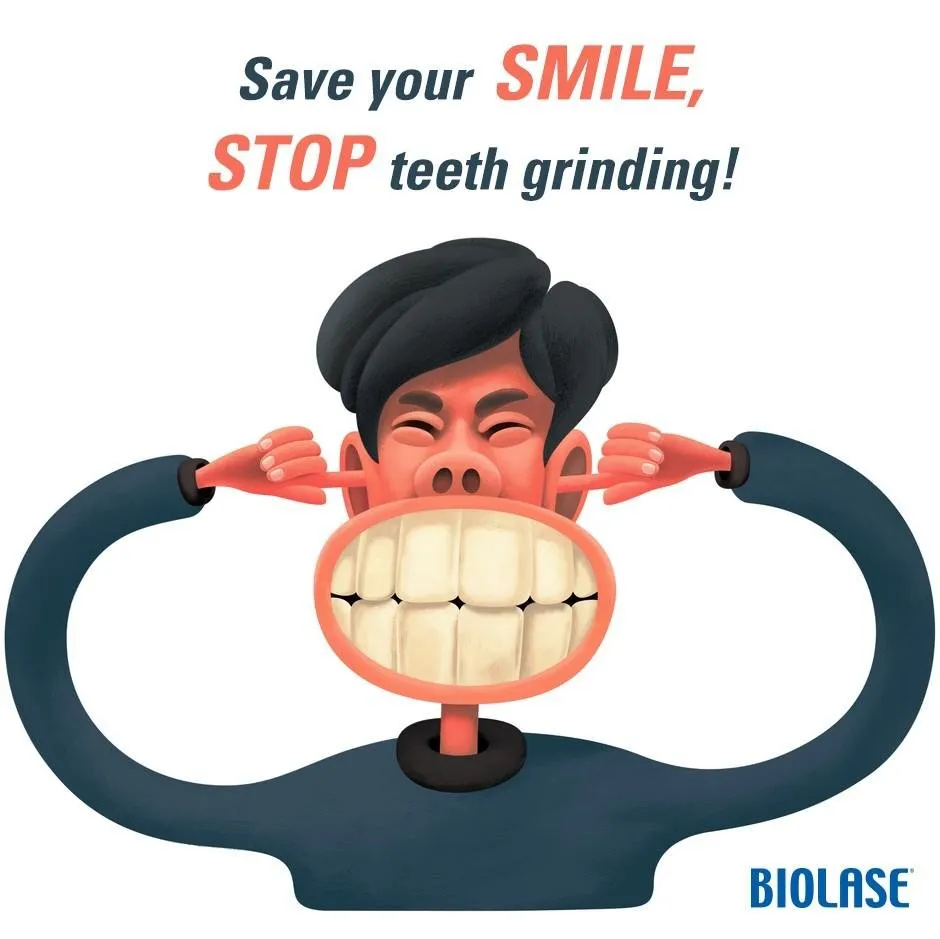Dear Steemers!!!
Have you ever been said by your partner that you clench your teeth at night or make screechy noise during sleep or even snore? Well, if you do you may be suffering from what is known as Bruxism and if so you need to consult a dentist and GP. If you are a teeth grinder you may even have these flat teeth with sensitivity more likely making your eating and drinking habits pretty sore. So lets see, what is Bruxism and why does it occur in a person? What are the main symptoms that shows you have Bruxism?
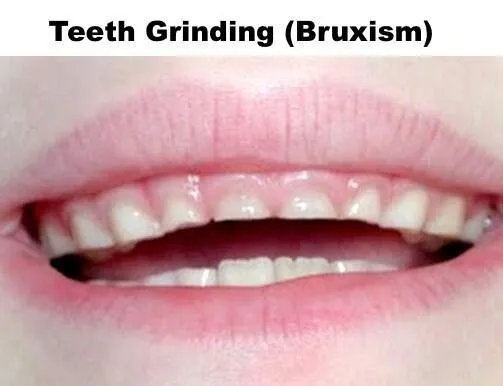
Bruxism
Bruxism or teeth grinding is an involuntary movement or clenching of teeth. This results in the tooth wear, sensitivity of teeth, headaches, jaw disorders,etc. Most people grind their teeth from time to time. It is seen both in children as well as in adults. Occasional Grinding of teeth usually doesn't cause any problem but when it becomes a habit on a regular basis, that is when it does harm to you and your teeth.
Types
Bruxism can be :
Awake Bruxism: That means the clenching of teeth when the patient is awake and occurs due to a certian stimuli like medication. There is generally no tooth grinding. This usually doesn't have the deleterious effects on teeth.
Sleep Bruxism: This is the type of Teeth clenching which a person does during sleep and isn't aware of. This does affect your teeth and the jaw joints and muscles.
Primary Bruxism That type of Bruxism that occurs without any prior underlying medical condition.
Secondary Bruxism A medical or psychiatric condition is known to cause the teeth to clench and thus bruxism.
Bruxism in Children
Approximately 15% to 33% children show the habit of Bruxism. This is seen to occur in children at two stages- when their deciduous or primary or milk teeth start to appear and when their permanent teeth starts to appear.
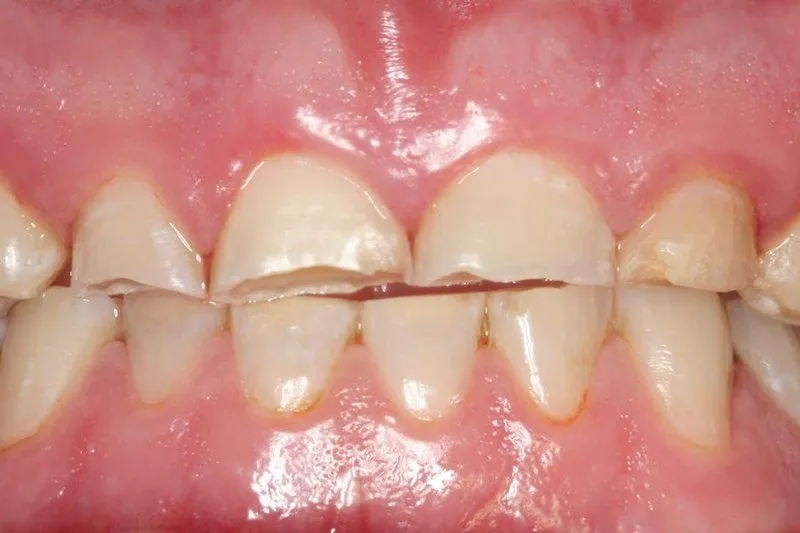 Source
Source
Bruxism in children is said to be due to stress caused by teething, anxiety, nutritional deficiencies as well.
The Bruxism in children doesn't cause any teeth problems and usually diminishes as soon as the all the milk teeth are replaced by permanent teeth. However, it may sometimes continue and lead to the teeth wear. Consult your dentist when you notice continuation of habit in your children even in adolescence.
Causes
Stress or Anxiety or Depression
It is considered to be the most common (70%) cause of the tooth grinding. Mostly the persons aren't aware of the tooth grinding in these cases.
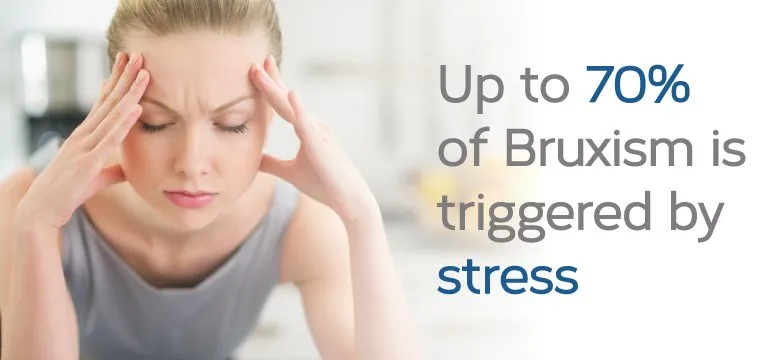 Source
SourceSleep Disorders
This is another big reason for tooth grinding. Almost 80% of sleep disorder cases are associated with Bruxism. Sleep Apnoea, Sleep paralysis, or even sometimes Hallucinations can cause you to clench your teeth due to breathing problems.Medication
Some medications tend to cause this habit and some psychiatric medications like Antidepressants have been seen to cause Bruxism in many patients.
Recreational drugs like cocaine has also been associated with causing Teeth clenching.Genetics
It is also seen as one of the causes of the Bruxism where teeth clenching runs in family and seen to be inherited to the children.Lifestyle
Some habits like Smoking, Alcohol, Tobacco or even the Caffeinated Drinks may cause teeth Clenching.Other disorders
Some mental health and medical disorders, such as Parkinson's disease, dementia, gastroesophageal reflux disorder (GERD), epilepsy, and attention-deficit/hyperactivity disorder (ADHD) are also associated with Bruxism.
 Source
Source
Symptoms
So how will a person find out if he/she is a tooth grinder or Bruxist.
Apart from being told by other persons or Your partner, there are certian symptoms which result due to Bruxism. These symptoms are as:
Oral Symptoms;
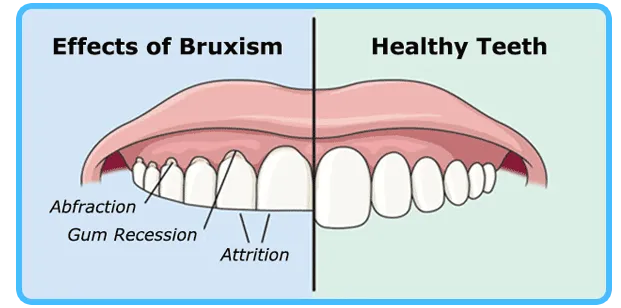 Source
Source
- The abnormal tooth wear or chipping.
- The Fracture of teeth.
- Sensitive flat front teeth.
- Notching of teeth at the bottom.
- Loosening of teeth.
- Receding gums.
- Premature loss of teeth.
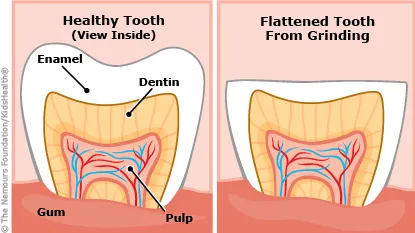 Source
Source
Physical Symptoms
- Headache
- Ear-ache
- Limited and Painful mouth opening
- Stiffness and Fatigue of Muscles
- Facial Pain or Myalgia
- Temporomandibular Joint Disorders
- Stiffness of Shoulders and Neck.
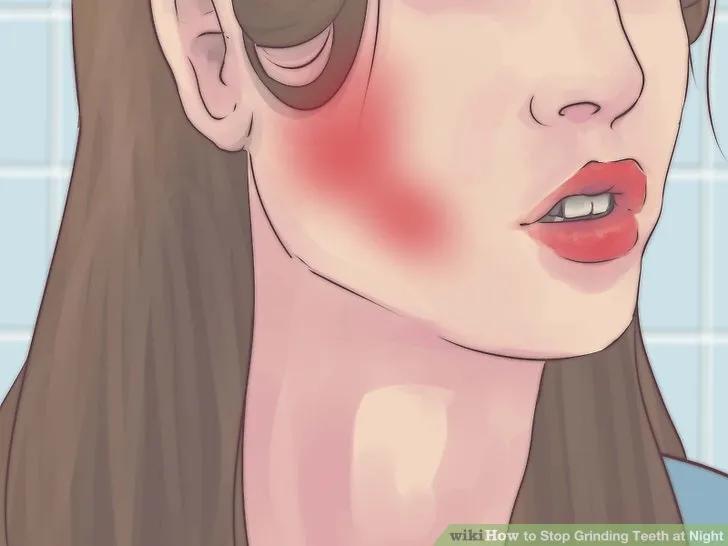 Source
Source
Other Symptoms
- Teeth grinding or clenching, which may be loud enough to wake up your sleep partner.
- Damage from chewing on the inside of your cheek
- Sleep disruption and frequent arousal during night.
- Sore/Tired Mouth Muscles in the mornings.
Treatment
Treatment of Underlying Cause
Stress or anxiety management:
Stress management by meditation, yoga or exercise. Whatever thing that keeps your.mind away fron stress is gonna help. If the bruxism is related to anxiety, advice from a licensed therapist or counselor may help.Sleep Disorders: A proper consultation with a specialist regarding The sleep disorders such as sleep apnea should be made and proper management of sleep disorders have shown good results towards treating bruxism.
Other Medical Disorders: The proper management of disorders like GERD, Parkinson's, Epilepsy, ADHD or even Dementia should be done.
Medication
Although no medicine can help to treat tooth grinding, but other symptoms are treated by medicicne as;
Muscle Relaxants
Botox injections: Done in patients where there is severe bruxism and people don't respond well to other treatment modalities.
NSAIDs.
Dental Approach
Mouth Guards and Splints; They help in maintaining the occlusion and prevent further wear or chipping of the teeth.
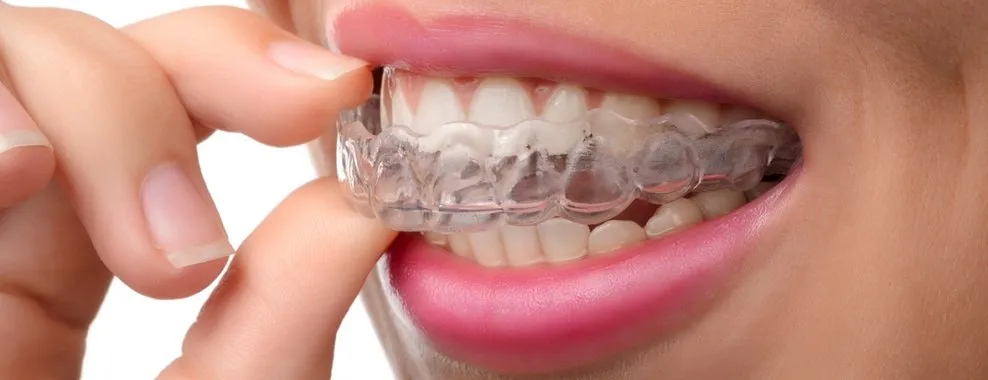 Source
SourceDental Corrections; The dentist may recontour the fractured front teeth to resemble that of the original teeth.
Behavior change
You may be able to change the behavior by practicing proper mouth and jaw position. Ask your dentist to show you the best position for your mouth and jaw.Biofeedback. If you're having a hard time changing your habits, you may benefit from biofeedback, a method that uses monitoring procedures and equipment to teach you to control muscle activity in your jaw.
Lifestyle Remedies
Complications
- MPDS (Myofacial Pain Dysfunction Syndrome)
- Tension Type Headache.
- Facial and Muscle Pain.
- Temporomandinular Joint Disorders
So this is all for tonight...Keep Steeming
Source
Mayo Clinic
NHS
Webmd
The Bruxism Association
Till next time.
Steem On
May The Steem Be With Us
To all the Kashmiri people on Steemit...Karew Kousher Steemit Join Discordas Paith
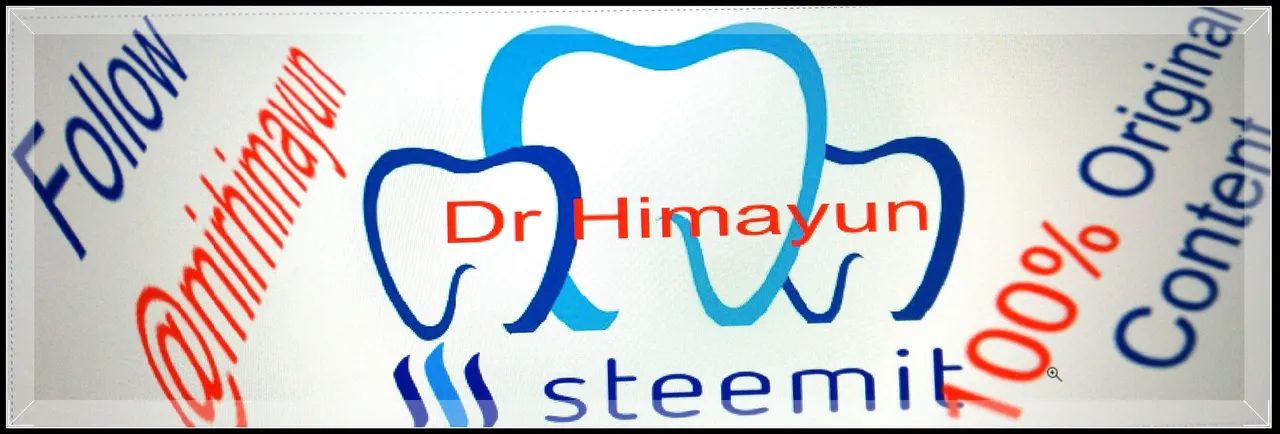
Follow @mirhimayun

